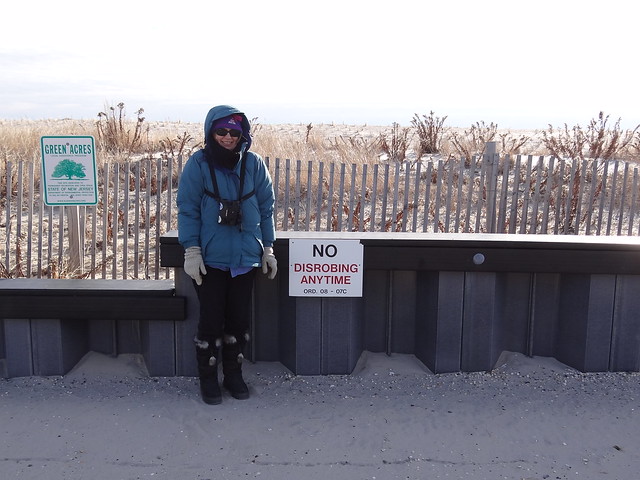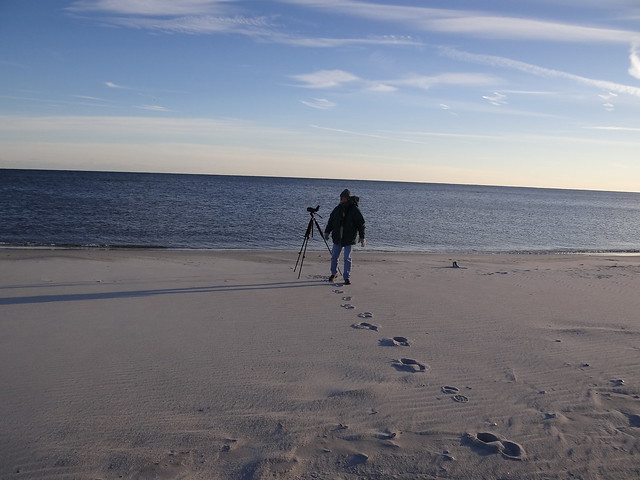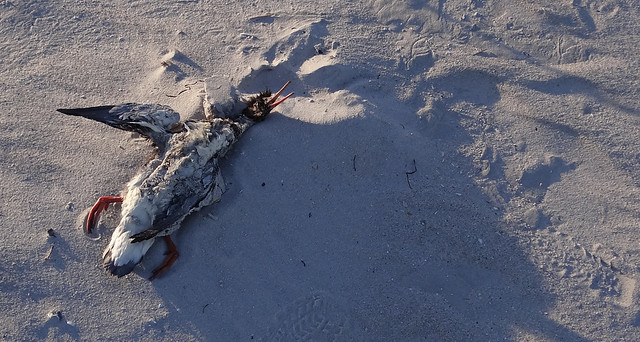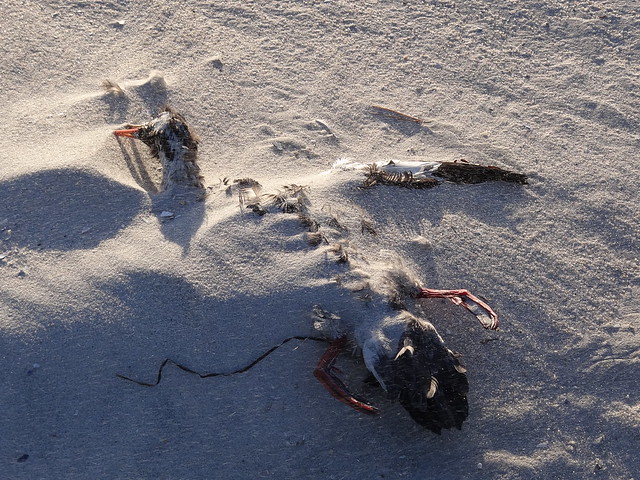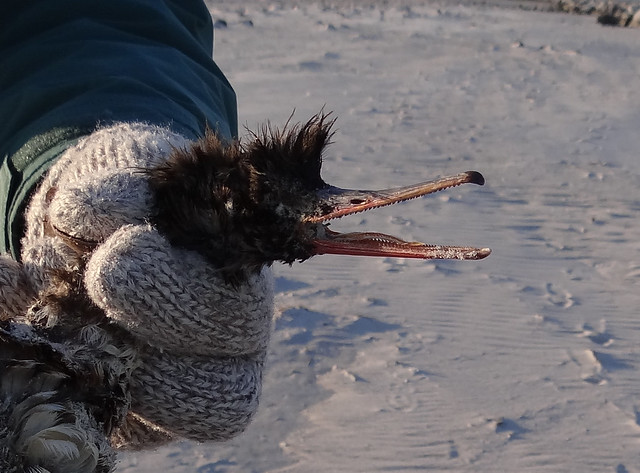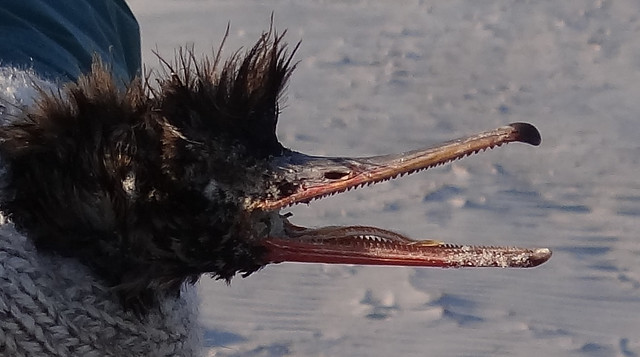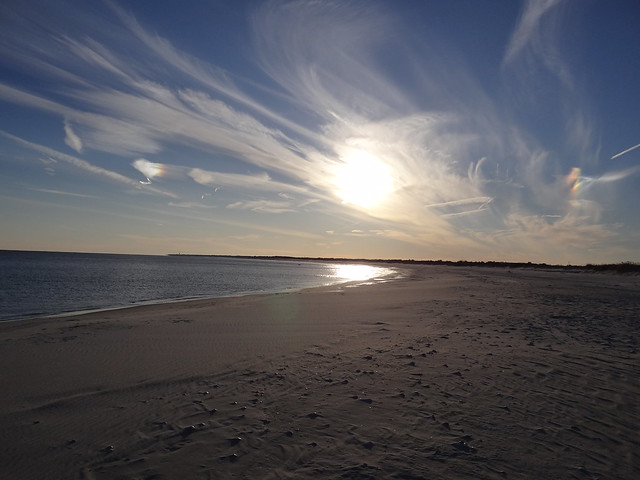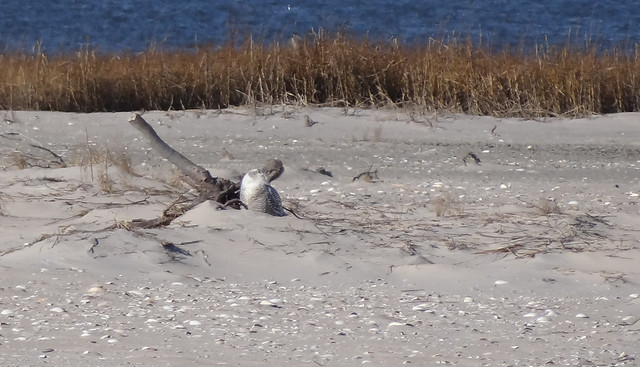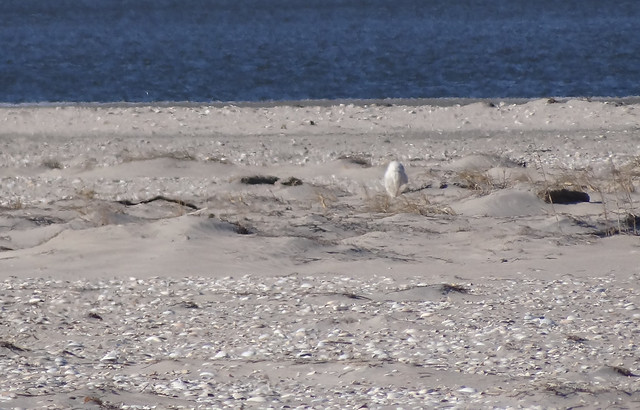Not much danger of that these frigid days in New Jersey.
This week found us visiting Sally and Shelby on Long Beach Island, an early New Years celebration and a chance to do a little bit of truly coastal birding: there’s nothing east of that barrier beach than lots of ocean and Portugal.
It’s been cold here recently, and yesterday afternoon’s winds were ferocious as we walked out the beach to see the ducks at Barnegat Light.
The sand was in constant restless motion, creating miniature dunescapes behind every shell and little rise and intent, it seemed, on erasing everything out there, living or dead.
This ill-fated red-breasted merganser was still on top of the sand when we walked past it on our way out to the water. Not quite as much, though, on our return.
Believe it or not, this was the first (reasonably) fresh merganser I’d ever seen in (more or less) the flesh, and it was fascinating to get an in-hand look at a bird familiar but often stand-offish.
Most wondrous of all was the tongue, big and fleshy and lined with recurved barbs nearly as stout as the sawteeth on the bill.
We finally committed the bird back to its sandy grave and turned to search for live ducks. The small common eider flock — a feature of Barnegat Light for, what, nearly twenty winters now — held three bright peach-breasted, green-headed drakes, and closer to the jetty, five or so harlequins fed with long-tailed ducks and Atlantic brant while common and red-throated loons fished the inlet. The best bird of the day by far, though, was a lovely little Ipswich sparrow playing around in the rocks, a find that almost — just barely almost — made us forget the howling, grit-laden wind scouring our faces as we returned to the car.
Today dawned just as cold, but the wind was down to a breeze, and when the sun burned away the early clouds, it was a beautiful winter’s morning. We devoted it to the southern tip of the island, nearly deserted in the cold but for birds.
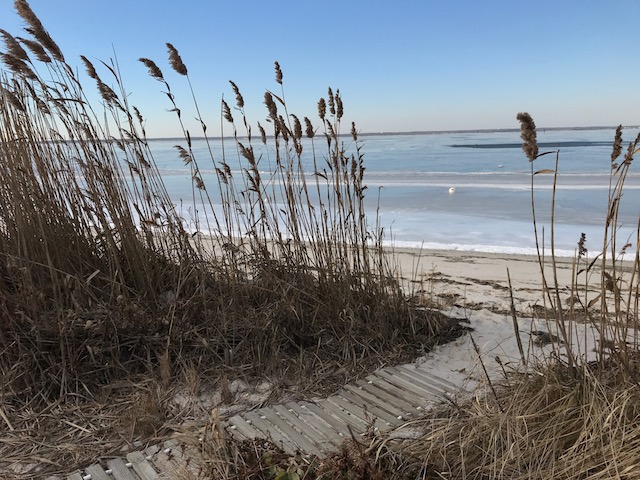
Photo by Sally
Sanderlings played on the water’s edge, and vast rafts of greater scaup and smaller numbers of black and surf scoters gathered just offshore. Passerines were scant, though they included half a dozen myrtle warblers and, hurray, two Ipswich sparrows perched up in the bayberry.
And there were owls.
We walked the edge of the dunes rather less than a mile south from the parking area, seeing three different snowy owls up on the sandy expanse.
At least two more were farther down towards the inlet, according to the few other brave birders we ran into. But even if it was warmer than yesterday, it was still not exactly warm, and after drinking our fill of the great white birds, we turned back to lunch, leaving the owls to look over the frozen bay and dream, no doubt, of their own.

